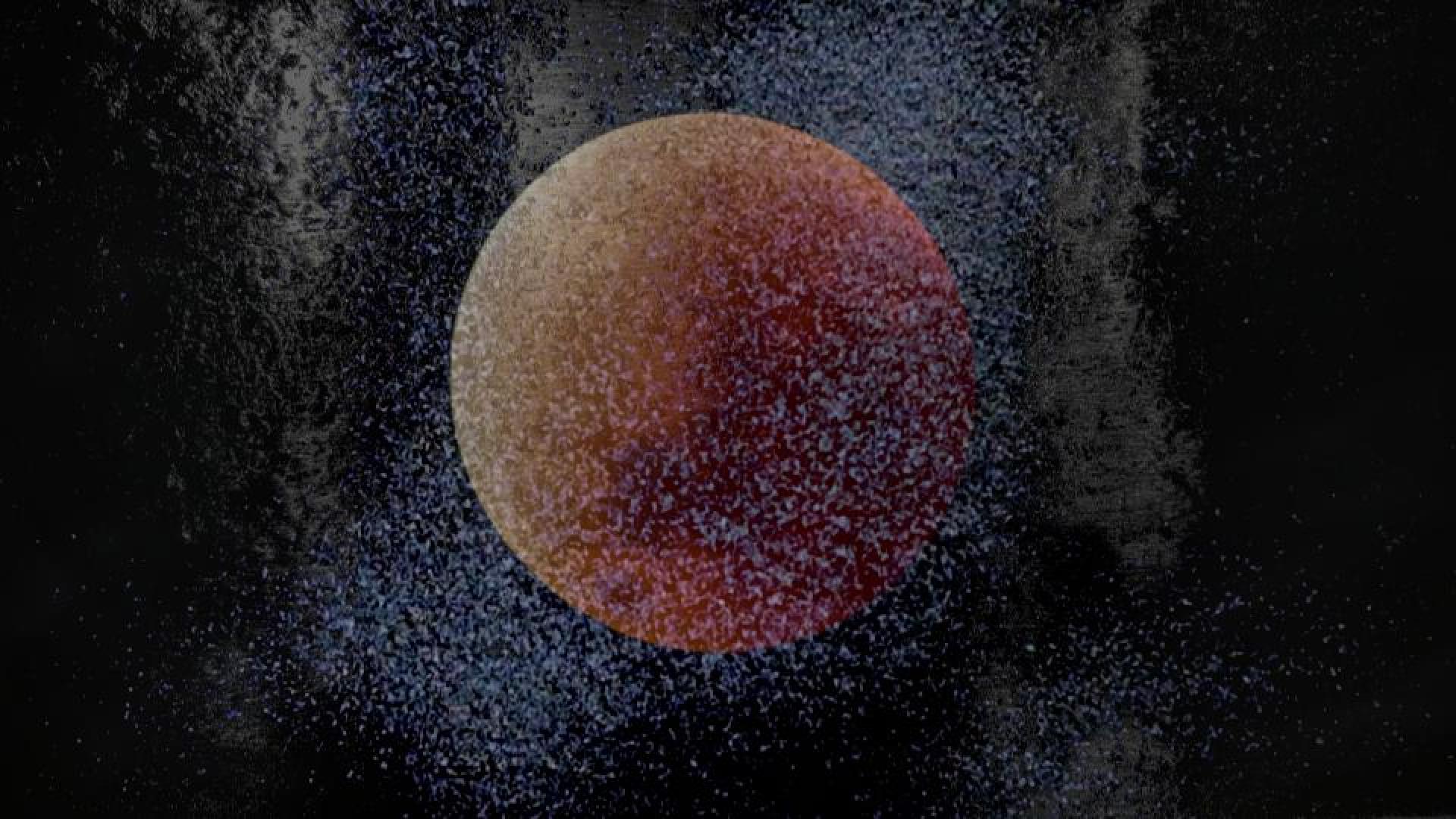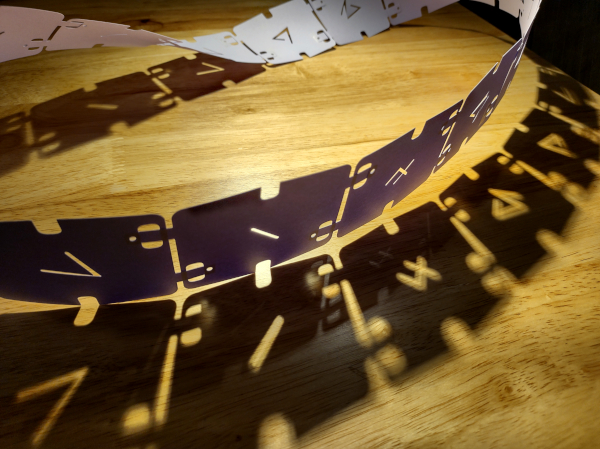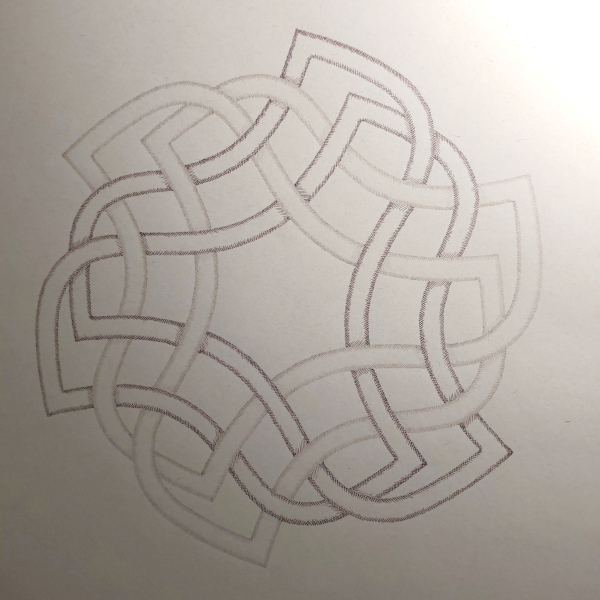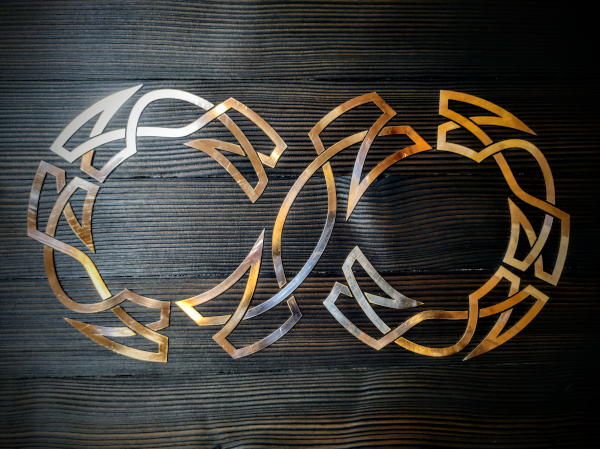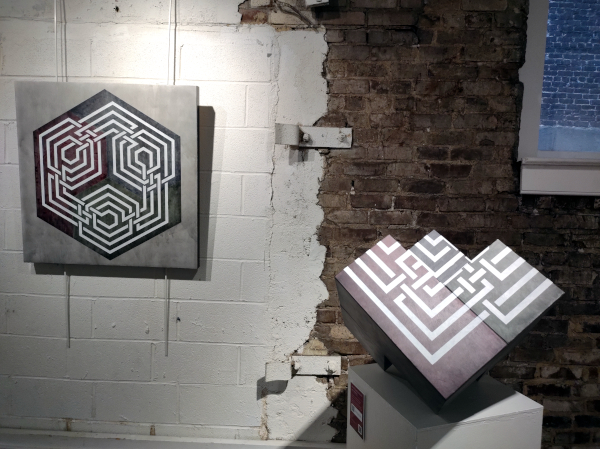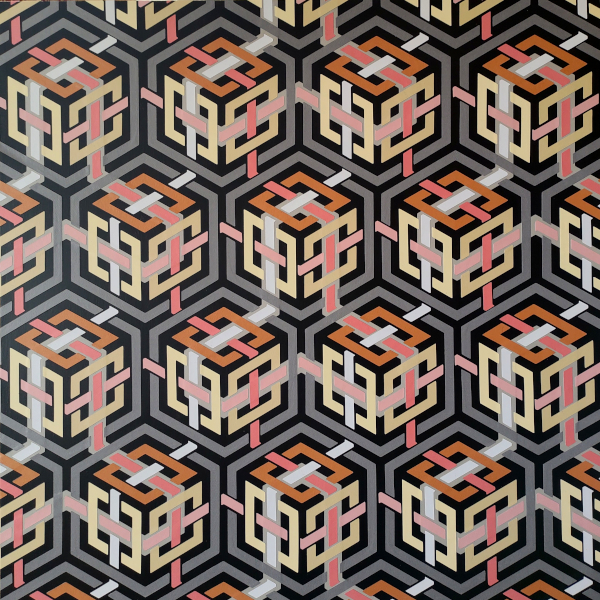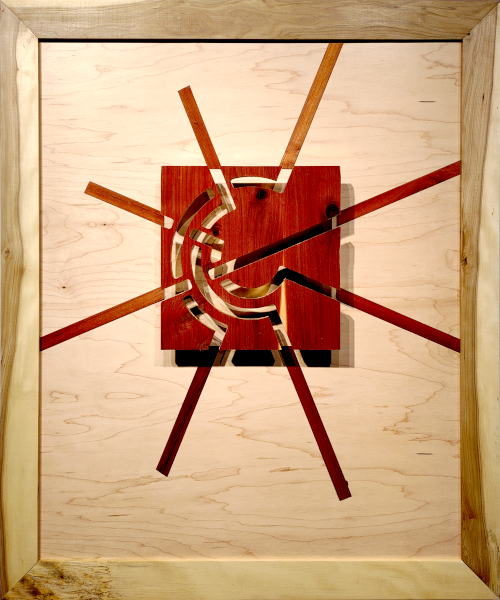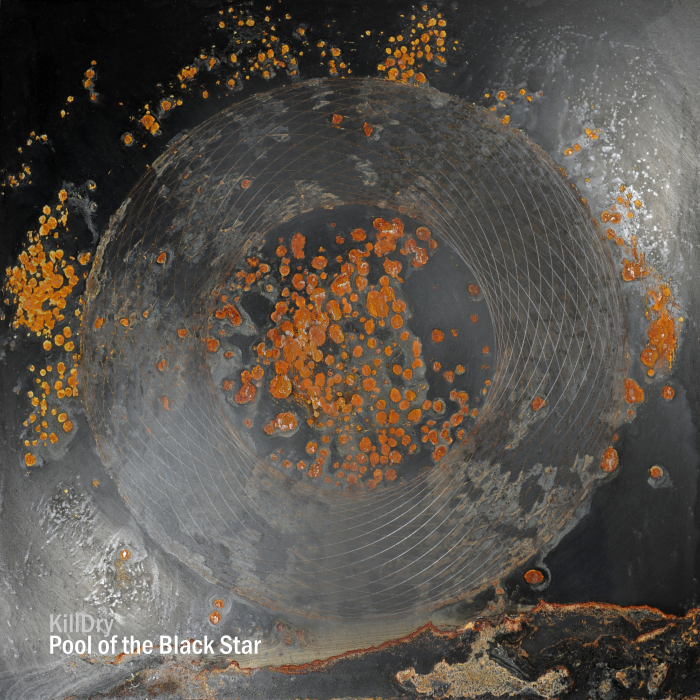Category: knot theories III
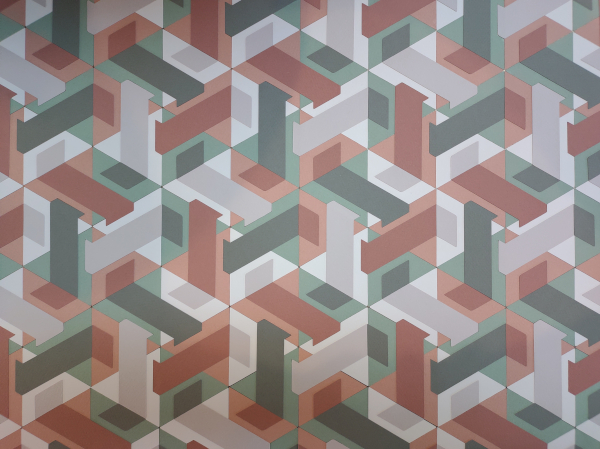
axonometric tiles
Lattices of three different colors intersect over a field of triangles. The large hexagon contains the basic unit for the pattern, made up of transformed copies.
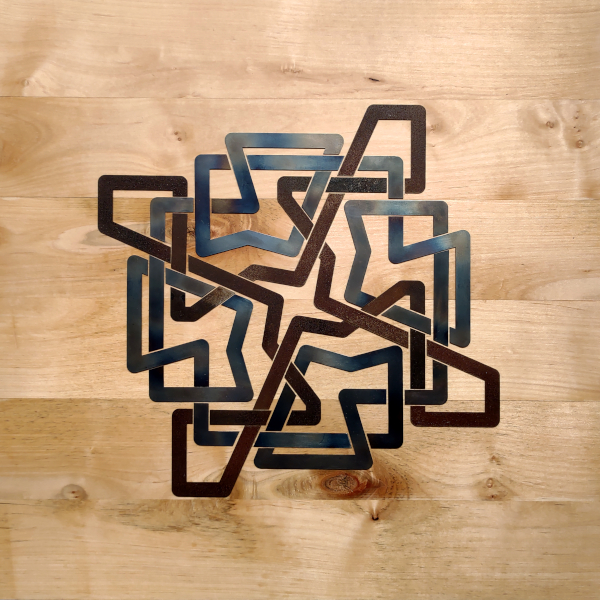
double quad knot
Two knots based on 90° radial symmetry intertwine. The same material (steel) is heat treated with different processes to create two different colors.
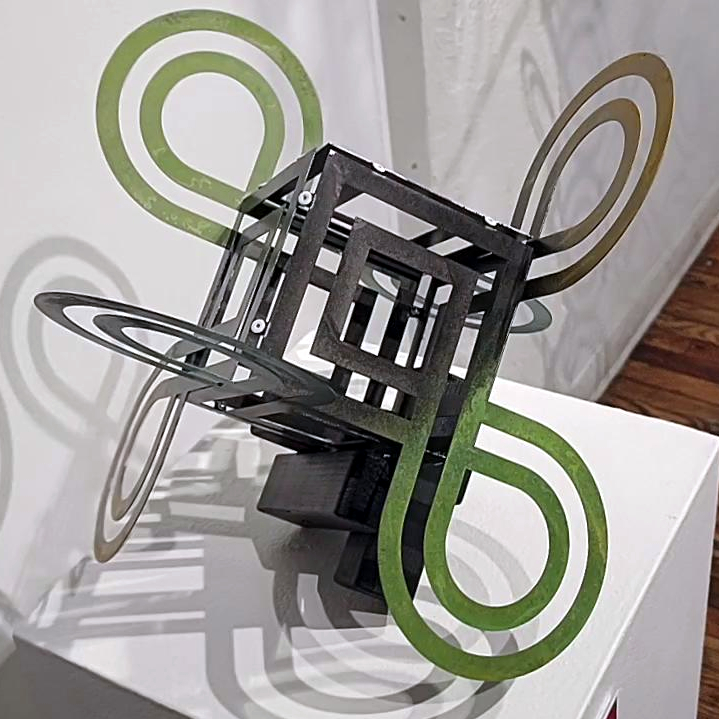
negative single twist components
A helix and a hexahedron are both composed from a single component, a negative single twist knot.
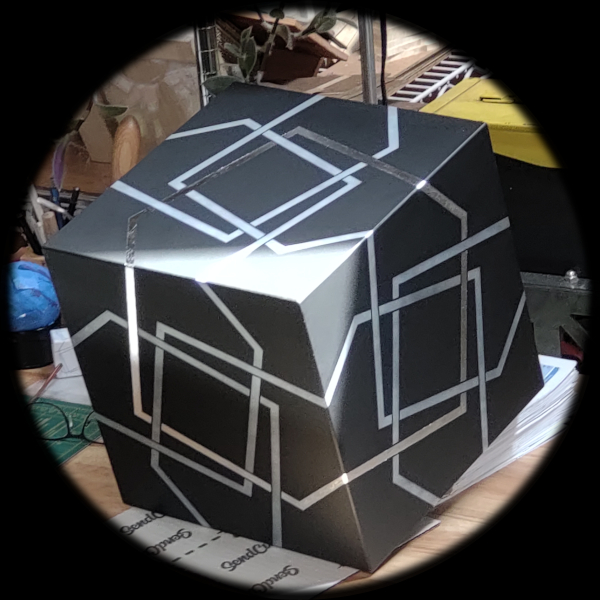
perspective hex
Eight knotted hexagons cover the surface of a cube in a pattern which is identical on each face of the solid.
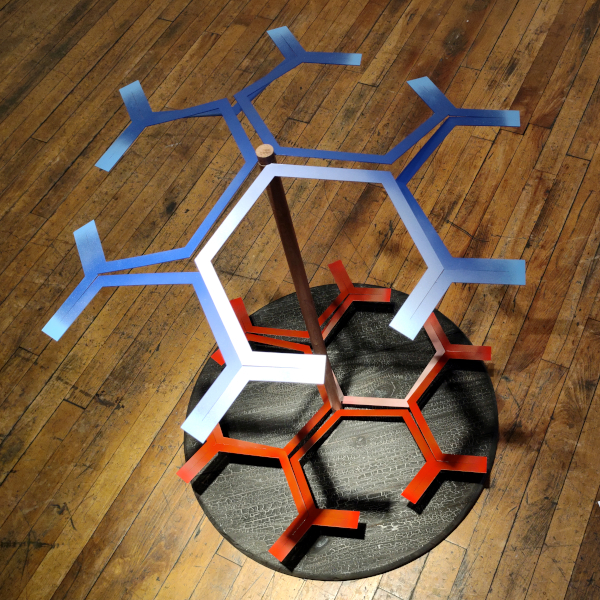
branching unknot
Two unknots are arranged vertically above a charred wood base. The shape of the metal makes self-supporting convex and concave arrangements possible.
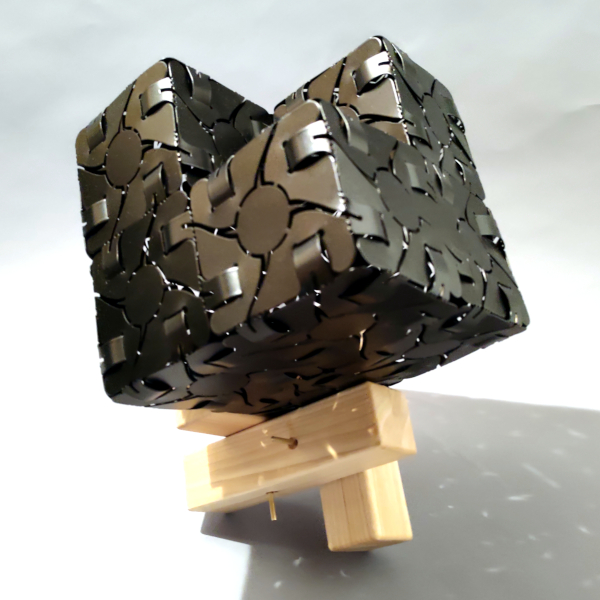
woven tile hexahedron
Copies of a single metal tile are woven together to form a cube with a concave vertex.
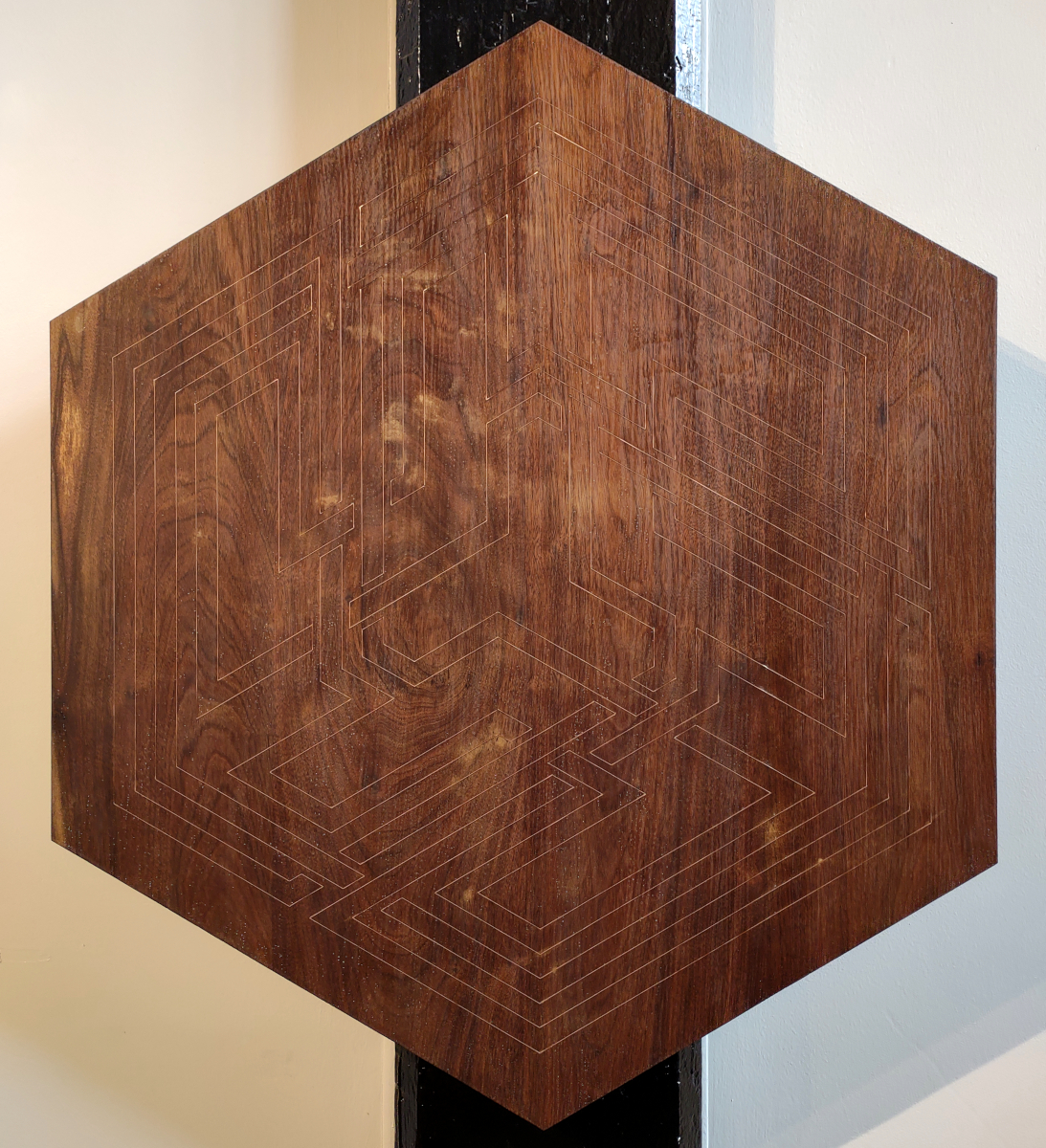
isometric hex knot
Outlined knot segments are inlaid with copper wire. Each segment follows a path which eventually returns to its origin.
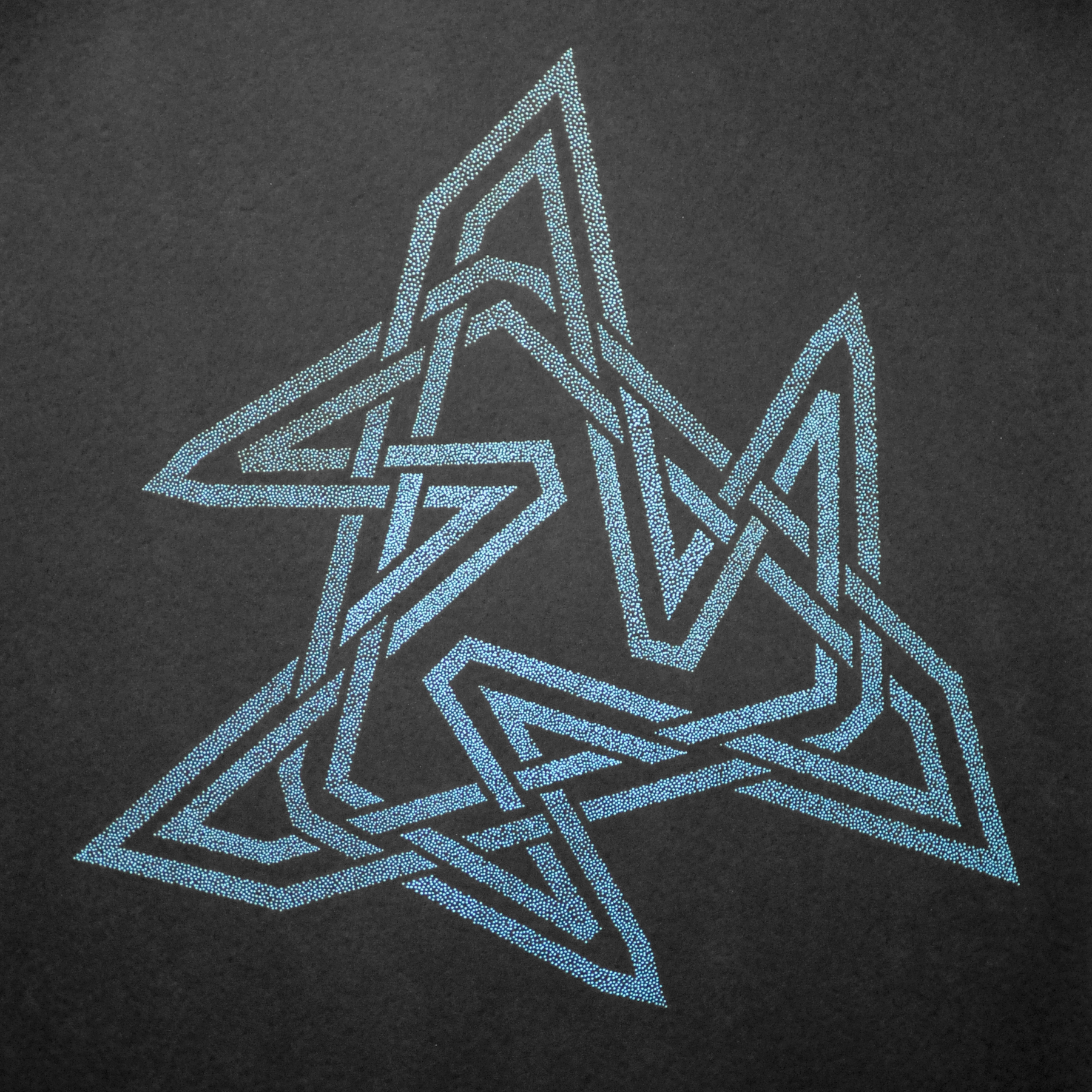
unicursal polygonal tercet
Stippled paint creates a unicursal knot design. The aggregation of dots suggests straight lines not present in the artwork. This single component is connected end to end with two rotated copies to create the knot. Doubling the individual segments of the knot design does not disrupt the over / under pattern that knot diagrams have.
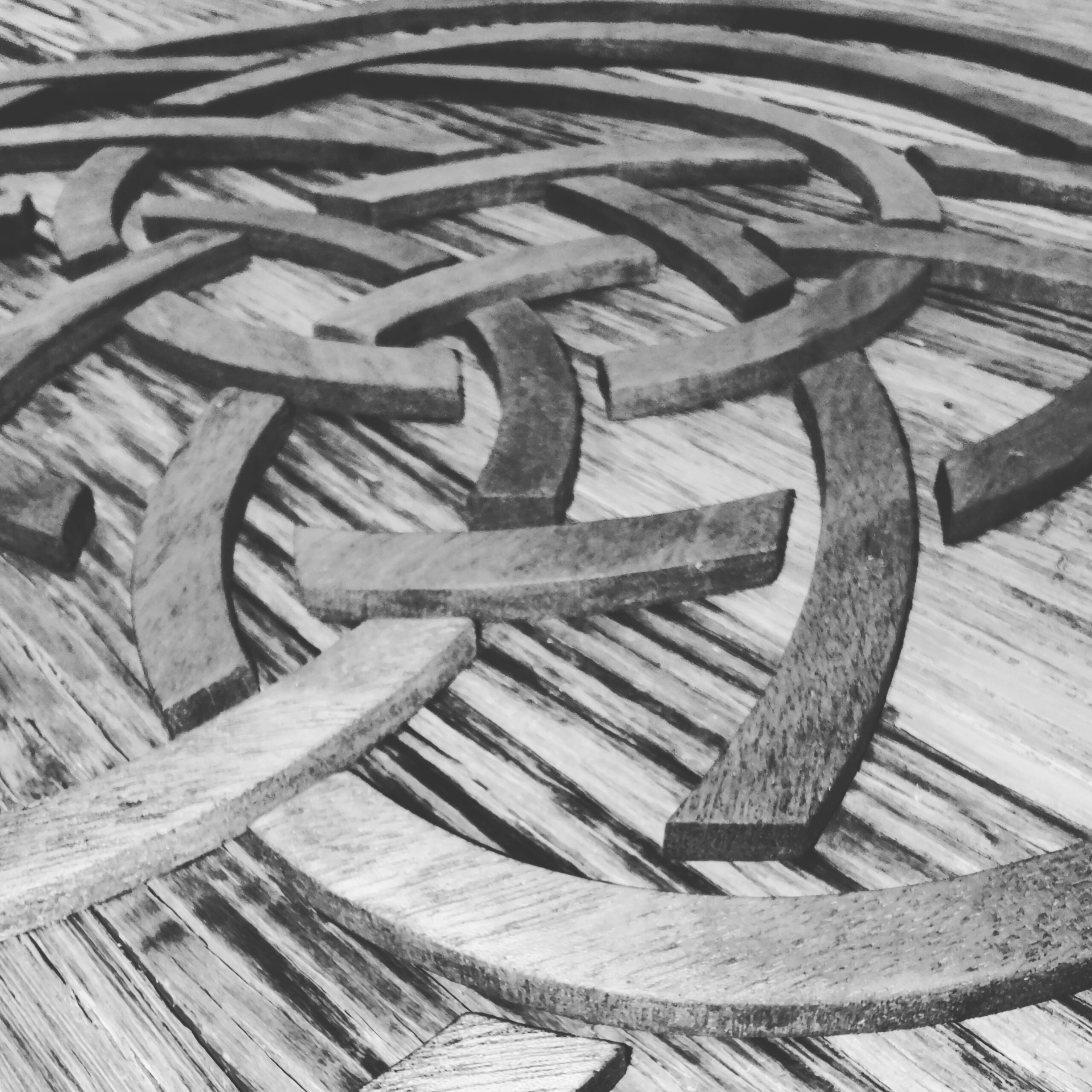
unicursal spiral tercet
Intersecting spirals become one line. The line can be traced from any point back to its origin.
